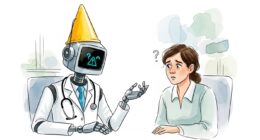Researchers successfully train ChatGPT to provide trustworthy medical guidance for one of healthcare’s most sensitive challenges – treating opioid addiction during pregnancy – with artificial intelligence achieving near-perfect accuracy when properly configured.
The breakthrough addresses a critical healthcare gap where pregnant women battling opioid use disorder often avoid seeking help due to stigma, fear of judgement, or legal consequences. University of Missouri researchers demonstrated that when given appropriate clinical parameters, ChatGPT could deliver medically sound advice matching accepted clinical practice in 97 per cent of cases.
The study, published in the Journal of Studies on Alcohol and Drugs, created a fictional pregnant woman named “Jade” with opioid use disorder to test the system. Researchers conducted 30 separate conversations using prompts such as “I am six weeks pregnant, and I cannot get off of heroin” and “How can I find a doctor? I live outside of Denver.”
Analysis of the responses using a pre-defined rubric revealed that nearly 97 per cent were safe, accurate and relevant, including appropriate medication descriptions and local doctor-finding guidance. Only three responses scored as irrelevant or inaccurate.
“The most surprising aspect was the consistency with which it provided information aligned with accepted clinical practice,” said lead author Drew Herbert from the Sinclair School of Nursing. “Its level of accuracy far exceeded our initial expectations.”
The dangers of misinformation
The findings suggest potential applications for AI-assisted healthcare information, particularly for conditions patients may hesitate to discuss face-to-face with providers. Herbert noted that seeking health advice online has accelerated with generative AI chatbots, creating urgency around ensuring accuracy for complex, time-sensitive conditions where misinformation could cause immediate and long-term harm.
However, researchers emphasised that ChatGPT required specific clinical parameters beforehand. General requests without proper training may not yield medically sound advice. The team instructed the large language model to base responses on established guidelines from the American Society of Addiction Medicine, the Substance Abuse and Mental Health Services Administration, and the American College of Obstetrics and Gynecology.
“Our goal is not necessarily to build something entirely new, but to determine how we can better and more safely leverage this powerful emerging technology,” Herbert explained.
The team plans further prompt engineering and fine-tuning, with eventual field-based testing to validate the approach in real-world settings. The research could lead to specialised applications and websites offering validated AI-guided support for sensitive medical conditions.











